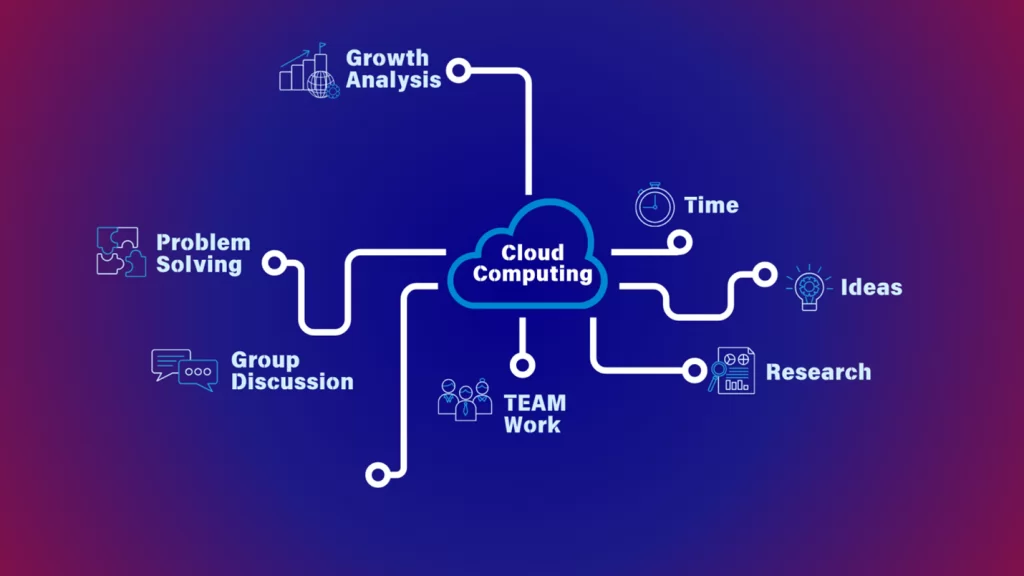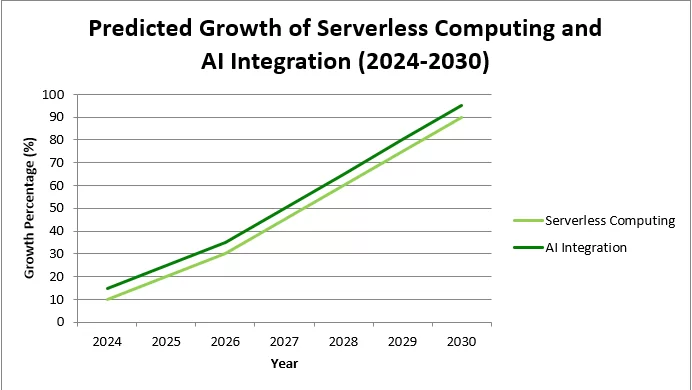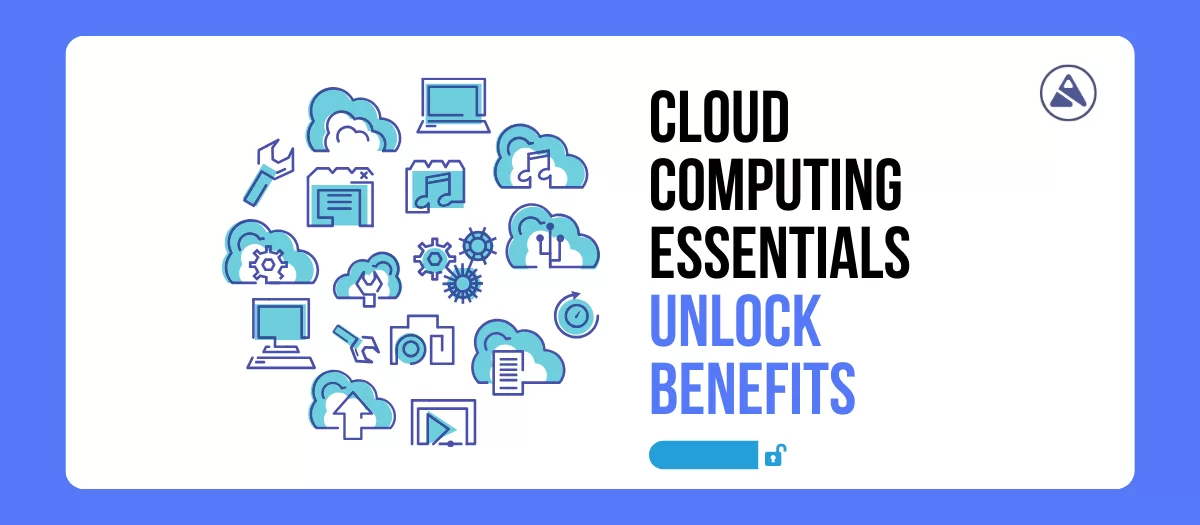Company
Contact
5900 Balcones Drive
#22258 Austin, TX, USA
Subscribe
Follow our newsletter to stay updated about us.
2025-Aishco Solutions & Consultancy. All Rights Reserved.
Share post on
Cloud computing essentials refers to delivering of computing services over the internet, including storage, processing power, and software. Instead of relying on local servers or personal devices, businesses use remote servers hosted on the internet to store and manage data.
Cloud computing is vital for businesses due to its cost-effectiveness, flexibility, and scalability. It allows companies to pay for only the resources they use, access data remotely and scale operations quickly without massive upfront costs.
Lumolog, a leading cloud computing solution, provides businesses with tools to optimize their cloud-based operations, making it easier to manage data and ensure smooth workflows.

Cloud computing reduces the need for expensive physical infrastructure, allowing businesses to pay for what they use.
Businesses can easily scale up or down their cloud resources based on demand without incurring significant costs or downtime.
Cloud solutions enable businesses to access data and applications from anywhere, providing flexibility and enabling remote work environments.
Cloud service providers offer advanced security measures, including data encryption, backups, and disaster recovery, ensuring business continuity and protecting sensitive information.
IaaS offers on-demand access to computing resources such as storage, networking, and virtual machines. Businesses rent these services from a cloud provider.
PaaS provides a platform for developers to build, test, and deploy applications without worrying about the underlying infrastructure.
A public cloud offers shared resources to multiple organizations over the internet. It is managed by a third-party provider and is the most cost-effective deployment model.
A private cloud is dedicated to a single organization. It offers greater control, security, and customization but at a higher cost.
A hybrid cloud combines the benefits of both public and private clouds, allowing businesses to store sensitive data on private servers while utilizing public cloud resources for less critical workloads.
Cloud security is critical for protecting sensitive data in cloud environments.
Cloud providers offer backup and disaster recovery options, ensuring that data is regularly backed up and can be quickly restored in case of loss or cyberattacks. Cloud-based backup solutions provide automated, scalable storage that grows with your data, minimizing the risk of human error and ensuring quick recovery times with minimal downtime.
Cloud services adhere to compliance frameworks such as GDPR, HIPAA, and ISO to ensure data protection and regulatory compliance. Cloud providers often undergo regular third-party audits and certifications, helping businesses meet their industry-specific compliance requirements without requiring extensive in-house resources.
| Industry | Cloud Use Case | Benefits |
|---|---|---|
| Healthcare | Patient data storage and telemedicine. | Secure access to medical records. |
| Education | E-learning platforms and student data storage. | Enhanced accessibility and collaboration. |
| Financial Services | Secure online transactions and data management. | High security and reduced infrastructure costs. |
| E-Governance | Public service delivery and data management. | Streamlined processes and better transparency. |
| Retail | Inventory management and e-commerce. | Scalability and real-time data management. |
| Media & Entertainment | Content delivery and media storage. | Fast streaming and reduced delivery costs. |
| Manufacturing | Supply chain management and production tracking. | Improved operational efficiency. |
| Agriculture | Data analytics for crop monitoring. | Enhanced productivity and resource management. |
| Transportation | Fleet management and real-time tracking. | Cost savings and optimized logistics. |
Businesses should begin by evaluating their current IT infrastructure. This includes identifying applications and workloads that would benefit from cloud migration. Applications that demand high scalability or remote access are often prioritized for migration.
Selecting the right cloud provider is crucial to the success of migration. Pricing, data center location, security protocols, and customer support should be considered. Popular options include AWS, Microsoft Azure, and Google Cloud.
Data migration is one of the most challenging aspects of cloud adoption. Businesses must ensure that data is transferred securely, without risking any breaches. Encryption and backup strategies play an essential role during the migration process.
After migrating to the cloud, it’s critical to test the system for performance, security, and usability. Businesses should also take this opportunity to optimize their cloud environment, leveraging cloud-native tools for monitoring, load balancing, and security management.
Hybrid and multi-cloud solutions offer businesses the flexibility to combine cloud environments. This allows companies to optimize performance, ensure redundancy, and avoid vendor lock-in by utilizing multiple cloud providers. For example, a company might use AWS for data storage and Microsoft Azure for AI services, gaining the best of both platforms.
Businesses face challenges in maintaining data privacy due to the remote nature of cloud environments. Encryption and multi-factor authentication can help mitigate these risks.
High latency can slow down access to cloud services. By choosing data centers closer to users, businesses can reduce latency and improve performance.
Relying on a single cloud provider can lead to vendor lock-in, making it difficult to switch providers or integrate with other services. To avoid this, businesses should adopt multi-cloud strategies.
Even top cloud providers can experience outages, disrupting business operations. To address this, companies can implement backup and disaster recovery plans and choose providers with strong service level agreements (SLAs).
IaaS allows SMEs to scale their IT resources based on their needs, providing flexibility and reducing upfront costs.
Serverless architecture eliminates the need for businesses to manage physical or virtual servers. Instead, they rely on a cloud provider to manage everything, allowing for cost savings and easier scalability.
AI and machine learning are increasingly integrated with cloud services, allowing businesses to perform advanced data analysis and automation without specialized infrastructure.

The graph shows estimated growth in serverless computing and AI integration from 2024 to 2030. These trends reflect industry expectations as businesses adopt serverless for scalability and cost-efficiency, while AI integration grows with increasing demand for automation. Though hypothetical, these projections align with current cloud adoption trends seen across platforms like AWS, Azure, and Google Cloud. Sources like Cisco & Forrester offer similar predictions.
Share post on
Company
Contact
5900 Balcones Drive
#22258 Austin, TX, USA
Subscribe
Follow our newsletter to stay updated about us.
2025-Aishco Solutions & Consultancy. All Rights Reserved.
